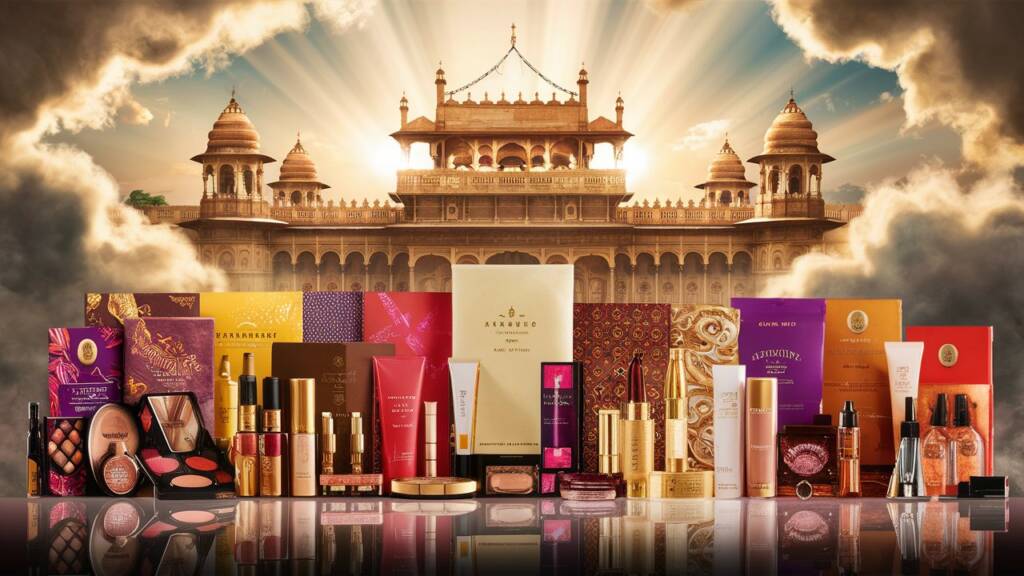
Have you ever wondered where your favourite beauty brands get their cosmetic products from? If you’re like most people, you probably assume that big-name companies manufacture everything in-house. However, the truth is that a growing number of beauty giants are turning to third-party cosmetic manufacturers to produce their products. This shift is revolutionising the industry, and it’s something we should all be excited about.
What Are Third-Party Cosmetic Manufacturers?
But first, let’s start with the basics. What exactly are third-party cosmetic manufacturers? These are companies that specialise in producing cosmetic products for other brands. They have the expertise, equipment, and resources to create high-quality makeup, skincare, and hair care products on a large scale.
Growing Outsourcing and Private Labelling: Effects on Local Businesses
Whether private labelling or contract manufacturing, India’s cosmetics business is trending. Many brands are contract manufacturing since they cannot afford their own production facilities. Small and medium-sized enterprises become competitive by entering this market area without large financial investments.
Many startups and digital-first beauty firms have realised their potential due to this simplification. Even big cosmetic companies need reliable co-manufacturers to introduce products faster and meet market demand. Third-party suppliers reduce production costs and improve speed and flexibility compared to in-house manufacturing.
Why Are Beauty Brands Outsourcing Production?
So, why are more and more beauty brands choosing to outsource their production to third-party manufacturers? There are a few key reasons:
Cost-Effectiveness
Setting up and maintaining an in-house manufacturing facility is incredibly expensive. By outsourcing production, beauty brands can save a significant amount of money on overhead costs, such as equipment, staff, and facilities.
Flexibility and Scalability
Third-party manufacturers can quickly adjust their production capacity to meet fluctuating demand. This flexibility allows beauty brands to launch new products or expand into new markets without having to invest in additional infrastructure.
Access to Expertise of Cosmetic Manufacturers
Third-party manufacturers employ teams of cosmetic chemists, product developers, and quality control specialists. By tapping into this expertise, beauty brands can create innovative, high-quality products without having to hire and train their own teams.
How Are Third-Party Manufacturers Revolutionising the Industry?
Now that we understand the benefits of outsourcing production let’s explore how third-party manufacturers are shaking up the beauty industry.
A Boost to More Inclusive Beauty Industry
The Indian beauty sector, dominated by monopolies until recently, has been levelled by third-party manufacturers. A low-cost, high-quality product with entrepreneurial abilities and willingness can compete with major firms today. No more spending millions or building facilities to start and grow your cosmetics business.
This has made it a hotspot for innovation, and hundreds of small firms that make high-quality goods are offering intelligent consumers many new options. Premium skincare and beauty products (organic/vegan/halal) are tailored to each market niche.
Increased Product Innovation
With access to cutting-edge facilities and expertise, third-party manufacturers are driving innovation in the beauty industry. They’re able to experiment with new ingredients, formulations, and product formats, leading to a wider range of creative and effective cosmetic products.
Faster Time-to-Market
Traditional in-house manufacturing can be a slow and cumbersome process. By outsourcing production, beauty brands can bring new products to market much faster, keeping up with rapidly changing consumer trends and demands.
More Affordable Luxury
Luxury beauty products often come with a hefty price tag, but third-party manufacturers are making high-end cosmetics more accessible. By reducing production costs, they’re allowing brands to offer premium products at more affordable prices.
Technology and Quality Catching Up With Global Firms
Top third-party manufacturers adapt their machines and packaging to new technology. Only qualified chemists and technologists develop their products to worldwide standards. Access to high production quality allows indie firms to achieve shelf-ready packaging, rich textures, and long-lasting formulas without a complicated production procedure.
Product and brand development
Many co-manufacturers may aid with product and brand development, ingredient sourcing and supply, compliance and regulatory challenges, warehouse management, and transportation. Along with media, they create marketing materials and go-to-market plans for customers. This lets them focus on their skills.
Made-in-India beauty firms are expanding globally with their dazzling products or once-obscure Ayurvedic components. Many beauty brands have succeeded by cooperating with third-party manufacturers, such as:
Sugar Cosmetics: From a D2 startup to India’s top mass cosmetics company with over $100 million valuation, Sugar has grown. Significantly, the company manufactures all 400+ items in third-party facilities.
Mamaearth: The brand pioneered natural baby care and became a million-dollar personal care business. They are new to the market and are manufactured by third parties in multiple Indian locales.
Plum : Plum has been a leading brand in affordable organic beauty for years due to its fruit-based products. Their production is done with foreign manufacturers.
IYA Naturals : we are committed to crafting exceptional natural skincare products that harness the power of nature to nourish and rejuvenate your skin. Our journey began with a simple yet profound idea: to create skincare solutions that are as pure and effective as nature intended.
Eteame : Eteame is not just a skincare brand—it’s a celebration of the timeless bond between nature’s wisdom and the nurturing essence of maternal care. Founded by Priyanka Srivastava, Eteame embodies a vision where every product is infused with the nurturing essence of a mother’s love.
The Rise of Indian Beauty Brands
One of the most exciting developments in the beauty industry is the rise of independent, or “indie,” brands. These smaller, niche companies are challenging the dominance of big-name brands by offering innovative, high-quality products.

How Third-Party Manufacturers Are Helping Beauty Brands?
For indie beauty brands, third-party manufacturers are a game-changer. Without the resources to set up their own manufacturing facilities, these smaller companies can leverage the expertise and production capabilities of third-party manufacturers to bring their products to market.
The Impact on Consumer Choice
The growth of Indian beauty brands, facilitated by third-party manufacturers, is giving consumers more choices than ever before. From clean beauty to gender-neutral cosmetics, there’s a wide range of niche products catering to diverse preferences and needs.
The Future of Third-Party Cosmetic Manufacturing
As the beauty industry continues to evolve, the role of third-party manufacturers is likely to grow even more significant.
Sustainability and Ethical Sourcing
Consumers are increasingly demanding sustainable and ethically sourced products. Third-party manufacturers are well-positioned to meet these demands by implementing eco-friendly practices and sourcing ingredients responsibly.
Personalisation and Customisation
One of the biggest trends in the beauty industry is personalised and customised products. Third-party manufacturers are exploring ways to offer mass customisation, allowing consumers to create bespoke cosmetics tailored to their individual preferences and needs.
Conclusion
Third-party cosmetic manufacturers have revolutionised the beauty market.
Due to innovation, affordability, indie brand growth, and sustainability, these producers make a major influence. As customers, we may still buy more special, distinctive, and ethically derived cosmetics that meet our requirements and interests. Due to its efforts, the “Made in India” brand will soon demonstrate national products’ quality and originality at international beauty fashion levels. The beauty revolution is bright, and third-party manufacturers are gaining speed.
FAQs

Is third-party manufacturing profitable?
With the growing demand for products, third-party production becomes highly profitable. With the ability to buy in bulk, the product owner can get better prices through negotiations. The third-party manufacturer will also provide at special prices, which will enhance their profitability.
What is third-party manufacturing?
A third-party supplier and a contract manufacturer are all the same thing. The third-party contract manufacturer refers to the company that usually manufactures a product of another company under the label or brand name of the latter.
What is a Contract Manufacturing Organization?
The idea of third-party manufacturers itself was to make manufacturing simple. There will be so many companies who want to be at the peak of the industry, having a strong presence but do not have a solid foundation or enough financial capital to produce their own goods for sale, so they opt for third-party manufacturers who can do that for them. They are also referred to as Contract Manufacturing Organization (CMO). The majority of these manufacturers work on a contractual basis to meet the needs of their clients by offering them supplies that meet their product requirements.





